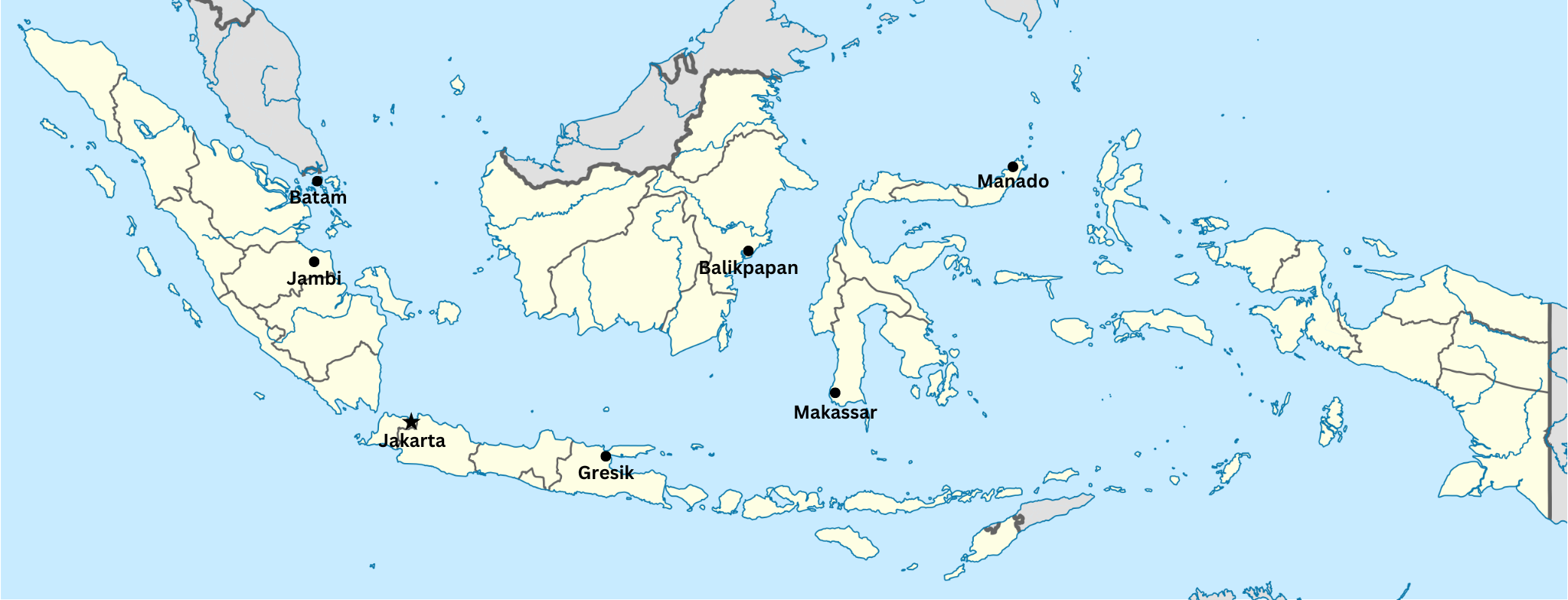Indonesia’s recent economic strides have been accompanied by the need for a sustainable digital infrastructure that US partners are now helping to provide. PT Super Sistem Data is the latest company to receive an American grant to support its subsea cable system project in Indonesia.
The US Trade and Development Agency (USTDA) recently awarded a $1.4 million grant to Indonesian telecommunications company PT Super Sistem Data as part of ongoing efforts to expand Indonesia’s telecommunications infrastructure. The purpose of the grant is to conduct a feasibility study on the development of a subsea fiber optic cable system known as “Barat Timur Indonesia” that would span approximately 4,700 kilometers (about 2920.44 mi) across the country’s entire East-West corridor.

As the fourth largest country in the world, Indonesia’s population of more than 274 million people is spread across 17,000 islands and boasts one of the fastest growing economies in the ASEAN region. However, the country lags behind its peers when it comes to digital connectivity, due in part to its unique geography. Indonesia’s fixed broadband performance speeds remain one of the slowest in Southeast Asia.
In recent years, the Indonesian government has focused on improving its digital infrastructure through projects such as the Palapa Ring project and the Industry 4.0 initiative which targets five priority sectors to accelerate digitization in. Coupled with Indonesia’s expanding middle class, the telecommunications market has substantial room for growth and many companies in the region are competing for their place in the market.
Super Sistem’s proposed fiber optic cable system will span Batam, Jakarta, and Manado, linking together a large portion of the country. It will also have four branching units in Jambi, Gresik, Balikpapan, and Makassar. But subsea cable systems, which support 95 percent of international internet traffic, are highly susceptible to various security challenges posed by natural disasters and human errors. As a result, the USTDA’s grant supports a feasibility study that will be conducted by the Florida digital infrastructure consulting firm APTelecom. The study will inform the design and plan for the eventual implementation of the cable system, slated for the fourth quarter of 2024.
The USTDA’s support for this project contributes to larger US development goals outlined in the Partnership for Global Infrastructure and Investment (PGII) and the Indo-Pacific Economic Framework (IPEF). The PGII was established at the 2021 G7 summit to close the infrastructure gap in developing countries and has previously partnered with Indonesia on the Just Energy Transition Partnership. The IPEF was launched in 2022 with the goal of strengthening economic ties with US allies in the Indo-Pacific region through the development of a framework that will contribute to the resilience and growth of all 14 economies involved. As such, this investment partnership with Indonesia is in line with American policy objectives in the Indo-Pacific region and is another step in ensuring mutually beneficial outcomes.
Cecilia Winchell is a participant in the Young Professionals Program at the East-West Center in Washington. She is a recent graduate from the University of Nevada, Las Vegas with a major in Philosophy and a minor in Public Policy.